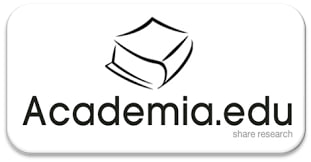Design and Fit of Auditors’ Psychological Model and the Disclosure Quality of the Board of Directors’ Activity Report
Keywords:
Auditors’ psychology, disclosure quality of reports, Board of Directors’ activity, interpretive structural modeling, grounded theoryAbstract
This study examines the design and fit of a psychological model of auditors and the disclosure quality of the Board of Directors’ activity report. The present research is applied in terms of purpose and descriptive-analytical in terms of nature, and it is conducted within the category of survey studies. First, the factors influencing the psychological model of auditors and the disclosure quality of the Board of Directors’ activity report were identified using the grounded theory method. Subsequently, the model was designed through the interpretive structural modeling (ISM) approach, and finally, the model was estimated using structural equation modeling (SEM). The data collection procedures in this research include both library and field methods. For reviewing the literature and research background, library methods were used, while field methods were employed to collect data aimed at confirming or rejecting the study hypotheses. Observation and a structured questionnaire served as the primary data-gathering tools. The statistical population of this research comprises partners, employees, managers, and supervisors of auditing firms. The first step in determining the sample size involved defining an expert according to specific criteria. In this study, the perspectives of 20 experts, audit firm managers, and university faculty members were utilized. In the quantitative section, the opinions of partners, employees, managers, and supervisors of auditing firms were employed to evaluate the model fit and validate it using the partial least squares (PLS) method. Ultimately, 317 questionnaires were selected and analyzed in the quantitative phase. The findings indicated that the measurement instruments demonstrated acceptable levels of validity and reliability. Moreover, convergent validity was confirmed through the evaluation of factor loadings, showing adequate differentiation among latent variables and the absence of overlap. Further, the structural model was analyzed using the Bootstrap method to determine the significance of relationships among latent variables and to verify the accuracy of the research hypotheses. The results showed that all model relationships were significant with appropriate strength, indicating the proposed model’s strong predictive and explanatory power. Additionally, the Variance Inflation Factor (VIF) was calculated for mediating and independent variables, confirming the absence of multicollinearity and ensuring the accuracy of parameter estimations. Overall, the findings revealed that the partial least squares (PLS) analysis technique is not only a powerful tool for evaluating multivariate structural models but also highly capable of analyzing complex and real-world data.
Downloads
References
1. Gholamrezaei M, Mohammad H. The effect of personality on the professional skepticism of independent auditors. Accounting Knowledge. 2013;10(29):51–95.
2. Gerd A, Naseri M. Examining the relationship between auditor professional skepticism, auditor rotation, and audit quality in companies. Accounting Research. 2016;2(9):20–90.
3. Malanazari M, Esmaeili Kia G. Identifying psychological characteristics affecting auditors' skills in making audit judgments. Accounting and Auditing Reviews. 2020;10(2):701–27.
4. El-Masry EHE, Hansen KA. Factors affecting auditors' utilization of evidential cues: taxonomy and future research directions. Management Auditing Journal. 2007;23(1):26–50. doi: 10.1108/02686900810838155.
5. Chen. How personality traits and professional skepticism affect auditor quality? A quantitative model. Sustainability. 2023;15(5):1–5. doi: 10.3390/su15021547.
6. Mousavi Gooki SA. Personality type and professional skepticism. Biannual Journal of Value and Behavioral Accounting. 2022;1(10):1–17.
7. Naderi S. Examining the impact of auditors' personality types A, B, C, and D on the content of audit reports. Journal of Accounting Knowledge and Management Auditing. 2018;7(2):21–50.
8. Safarzadeh. The effect of personality type on audit reporting (Case study: Supreme Audit Court). Governmental Accounting. 2014;10(1):70–80.
9. Alizadegan. An analysis of auditors' ability to detect fraud using the theory of planned behavior: The impact of auditor experience and personality type with the mediating role of professional skepticism. Financial Accounting and Auditing Research. 2021;7(10):23–50.
10. del Río C, Lopez-Arceiz FJ, Muga L. Do sustainability disclosure mechanisms reduce market myopia? Evidence from European sustainability companies. International Review of Financial Analysis. 2023;87:Article 102600. doi: 10.1016/j.irfa.2023.102600.
11. European C. Commission Simplifies Rules on Sustainability and EU Investments, Delivering Over €6 Billion in Administrative Relief. 2025.
12. Driss H, Drobetz W, El Ghoul S, Guedhami O. The sustainability committee and environmental disclosure: International evidence. Journal of Economic Behavior & Organization. 2024;221:602–25. doi: 10.1016/j.jebo.2024.02.019.
13. Dai YH, Hu SB, Zhai ZK. Policy role, information disclosure, and enterprise innovation. Finance Research Letters. 2024;63:Article 105287. doi: 10.1016/j.frl.2024.105287.
14. Liu XQ, Liu JY, Liu J, Zhai Q. Can investor-firm interactions mitigate ESG rating divergence? Evidence from China. International Review of Financial Analysis. 2024;96:Article 103612. doi: 10.1016/j.irfa.2024.103612.
15. Liu N, Xu QQ, Gao M. Digital transformation and tourism listed firm performance in COVID-19 shock. Finance Research Letters. 2024;63:Article 105398. doi: 10.1016/j.frl.2024.105398.
16. Fidiana F, Yani P, Suryaningrum DH. Corporate going-concern report in early pandemic situation: evidence from Indonesia. Heliyon. 2023;9:e15138. doi: 10.1016/j.heliyon.2023.e15138.
17. Erin O, Adegboye A, Bamigboye OA. Corporate governance and sustainability reporting quality: Evidence from Nigeria. Sustainability Accounting, Management and Policy Journal. 2022;13(3):680–707. doi: 10.1108/SAMPJ-06-2020-0185.
18. Dutta P, Dutta A. Impact of external assurance on corporate climate change disclosures: New evidence from Finland. Journal of Applied Accounting Research. 2021;22(2):252–85. doi: 10.1108/JAAR-08-2020-0162.
19. Moradi M, Gorgani ME, editors. Investigating the effect of professional skepticism arising from personal characteristics and client attributes on auditors' professional judgment. First National Conference on Auditing and Financial Supervision of Iran; 2018.
20. Soleimani A. The effect of auditor reputation, audit fees, and professional skepticism on audit quality in earnings management. Studies in Ethics and Behavior in Accounting and Auditing. 2021;3(2):52–79.
21. Navallas B, Campo CD, Camacho-Minano MDM. Professional contacts and the decision to become an auditor: An analysis using LinkedIn. Accounting Education. 2024;33:27–45. doi: 10.1080/09639284.2022.2121169.
22. Boni L, Scheitza L. Analyzing the role of regulation in shaping private finance for sustainability in the European Union. Finance Research Letters. 2025;71:Article 106435. doi: 10.1016/j.frl.2024.106435.
Downloads
Published
Submitted
Revised
Accepted
Issue
Section
License
Copyright (c) 2025 Meysam Hasirian, Rahmatollah Azad, Hamidreza Gholamnia Roshan, Kaveh Azinfar (Author)

This work is licensed under a Creative Commons Attribution-NonCommercial 4.0 International License.




